This article was co-authored by Chris M. Matsko, MD. Dr. Chris M. Matsko is a retired physician based in Pittsburgh, Pennsylvania. With over 25 years of medical research experience, Dr. Matsko was awarded the Pittsburgh Cornell University Leadership Award for Excellence. He holds a BS in Nutritional Science from Cornell University and an MD from the Temple University School of Medicine in 2007. Dr. Matsko earned a Research Writing Certification from the American Medical Writers Association (AMWA) in 2016 and a Medical Writing & Editing Certification from the University of Chicago in 2017.
There are 21 references cited in this article, which can be found at the bottom of the page.
This article has been viewed 139,341 times.
No matter what our existing health, financial, mental, economic, or social situation is, there are things we can each do to take (better) control of our own health. No one is too young or too old to learn good, healthy habits.
Steps
Controlling Your Physical Health
-
1Talk with your doctor about health maintenance. General health maintenance and an emphasis on wellness will help you take control of your health.[1] Tell your doctor that you would like to schedule a health maintenance examination in order to assess your risks for certain disease. This is especially important for people of older age, gay men and women, pregnant women, people with cancer, and those that have diabetes. In advance of your appointment, consider preparing by doing the following:
- Write down your reasons for wanting to create a health maintenance plan. This way you'll have a starting point for your conversation with your doctor.
- Write down a list of health goals. For example, you may want to lower your blood pressure, lose a certain amount of weight, or manage your diabetes.
-
2Work with your doctor to create a plan. Having a plan you can follow will be extremely helpful and will create short-term objectives you can work towards to stay motivated. Ask your doctor to help you break down each goal into manageable steps you can start practicing right away.
- Depending on your starting point, taking control of your health could be a one to five year endeavor. Your plan should include specific goals you want to achieve over those one to five years, and it should be broken down into smaller, more manageable goals to achieve on a monthly or quarterly basis.
- Your plan is a starting point and doesn't have to be written in stone. If something happens or if your life changes, update your plan accordingly.
- Use your journal to keep track of your short and long term goals, and whether you've been able to achieve them. If you weren't able to achieve them, understand the reasons and add new goals in their place.
Advertisement -
3Get routine checkups to stay abreast of health issues. Your health plan should include regularly scheduled checkups and screenings for cardiovascular disease, hypertension and cancer. Talk with your doctor about which screenings you should be getting and how often you need to get them.[2]
- Cardiovascular disease should be assessed when you are twenty and then every ten years afterwards. A great risk stratification tool is the Framingham risk score. Major risk factors for heart disease include diet, smoking, hypertension, dyslipidemia, obesity, physical activity, and diabetes mellitus.
- Hypertension screening is recommended for adults great than 18 years old.
- Diabetes screening is usually suggested for those with dyslipidemia and hypertension.
- Your doctor may recommend screenings for breast cancer, cervical cancer, colorectal cancer, and other types of cancer depending on your risk factors. Cancer prevention includes avoidance of tobacco, being physically active, maintaining a healthy weight, eating fruits and vegetables, limiting alcohol consumption, protecting against sexually transmitted disease, and avoiding sun exposure.
- Additionally, make sure your immunizations are up to date and discuss your particular needs with you doctor.
- Maintenance of psychosocial health is important; talk to your doctor about screening for such conditions such as depression and anxiety.
- Finally, health issues to consider include osteoporosis and vascular disease.
-
4Cut out the negative influences. We often have such good intentions to become healthier, but then those intentions get off-track by negative influences in our lives. Those negative influences hold us back from achieving our ultimate goals. If you want your plan to work, you need to slowly get rid of those negative influences.[3]
- Make a list of all the things in your life that you consider to be negative influences. Specifically think of influences that affect your health.
- Go through your list and prioritize the items from easiest to hardest to eliminated.
- Then slowly work your way through the list and get rid of those negative influences from your life.
- You don't have to stop these influences all at once. Slowly work your way up to cutting as many of them out of your life as possible.
- Examples of negative influences you may want to include on your list are: having junk food in the house, regularly passing by a convenience store where you buy a chocolate bar, driving by a fast food drive thru, staying up too late, being disorganized, someone who brings donuts to work, a friend who doesn't respect your goals, etc.
-
5Drink enough water and liquids. Human bodies are made up of 60% water. Because of this, water is a vital ingredient to a healthy body. Water removes toxins from our organs and carries important nutrients to our cells. Not enough water can lead to dehydration which can make you tired and negatively impact your vital systems. Men need about 13 cups (3 litres) of beverages a day and women need 9 cups (2.2 litres) of beverages a day.[4]
- These amounts are for all beverages you consume throughout the day, not just water. All liquids replenish your system in some way, but some beverages (like water) do a better, and faster, job.
- You do not need to physically measure your liquid intake every day, instead, just make sure if you're thirsty that you drink enough liquid so as to no longer be thirsty.
- Remember that water is lost when you breathe, sweat, and when you go to the bathroom. If you do any of these things more often, or for a longer period of time, (e.g. if you're sick or exercising) you need to consume more liquids to make up for the additional water you're losing.
-
6Get enough sleep. Adults between the ages of 18 and 64 need between 7 and 9 hours of sleep every night. Adults over the age of 65 need between 7 and 8 hours of sleep every night. The amount of sleep you get impacts your mood, energy and long-term health. In addition to getting enough sleep, there are some basic sleep 'rules' that can be followed:
- Follow a sleep schedule that stays the same every day, including the weekends.
- Create a bedtime routine that you follow every night, without exception.
- Make sure your bedroom is dark, quiet and cool.
- If your sleep isn't restful, consider getting a new mattress or pillows.
- Avoid drinking anything caffeinated several hours before bedtime.
- Use your bed only for sleeping (and sex).
-
7Exercise on a regular basis. To experience substantial health benefits, adults should exercise at a moderate intensity for at least 150 minutes (2 ½ hours) per week, or at a vigorous intensity for at least 75 minutes (1 ¼ hours) per week. Of course, a combination of both moderate and vigorous activities every week is also great.[5]
- Activity should be performed in periods of at least 10 minutes, and should be spread out over the whole week.
- To obtain even better benefits from physical activity, increase your moderate activity to 300 minutes (5 hours) per week, or your vigorous activity to 150 minutes (2 ½ hours) per week.
- In addition to this aerobic activity, adults should also perform muscle-strengthening activities at least twice a week.
-
8Savor your food. Sometimes we consume too much food simply because we aren't paying attention. Usually it's because we're eating while doing something else, like working or watching TV. Instead of eating while distracted, dedicate your meal times only to meals. Sit yourself away from distractions and enjoy your food. Eat slowly.[6]
- When you're able to eat slower, you'll be able to 'read' your body's messages better. When your body tells you it's full, stop eating.
- Over time you should be able to tell how much you can eat at one meal, and you'll only put that amount on your plate. Until then, save the leftovers for another meal or for someone else.
-
9See an eye doctor annually. Eye exams can actually detect more than just vision problems, they can detect symptoms of diabetes, hypertension and rheumatoid arthritis. Getting your eyes checked on an annual basis will help ensure you have the right aids (i.e. glasses, contact lenses) with the right prescriptions to help you see your best.[7]
- Not wearing glasses when you should, or having the wrong prescription lenses, can cause other health problems like headaches. Making sure your prescription is up-to-date can help prevent many of these problems from occurring.
- In addition to getting your eyes checked on a regular basis, protect your eyes every day by doing the following:[8]
- Wear sunglasses when outdoors, all year round. And wear a hat with a brim across your forehead to help with glare.
- Always wear eye protection when doing hazardous work.
- Wear protective equipment for your eyes when playing sports.
-
10Go to the dentist annually. Being healthy also means having a healthy mouth — with healthy teeth and gums. Seeing your dentist at least once a year will help make sure your teeth and gums are at their best. And it can help identify medical problems at the early stages. As with vision, many diseases can actually be detected from a dental exam before other symptoms appear.
- Good dental health also means brushing and flossing your teeth on a regular basis.
- Ideally you should brush your teeth after each meal, but at the very least brush your teeth once a day, right before bed.[9]
- You should floss at least once a day, possibly after you've brushed your teeth and right before bed.
-
11Stop smoking. If you're a smoker, one of the healthiest things you can do for yourself is to quit. It is never too late to quit. Quitting smoking will give you immediately and at any age.[10]
- Quitting smoking can immediately have positive effects on your health like reducing your risk of heart disease, cancer and breathing problems.
- Depending on how much you smoked, you can save a significant amount of money that can be put to better use elsewhere.
- Most states and provinces have free programs available to help you quit smoking, so you do not have to go it alone.
Maintaining Your Mental Health
-
1Create and maintain healthy relationships. Connecting with other human beings is good for your mental health. Friends and family can help reduce your stress levels and increase your overall sense of well-being. These connections help you feel supported and valued, which in turn will help you feel happier and less lonely.[11]
- Personal connections are beneficial to your health. For example, loneliness can increase high blood pressure and human connections can actually prolong your life span.
- Existing friend and family connections need to be supportive to you, or they may not be beneficial. You should have at least a few friends or family members with whom you: feel comfortable being around; get the sense that you could tell them anything without being judged; can ask for help to solve problems; feel valued; are treated seriously.
- If you're looking to make new friends, consider one of the following activities: enrol in an interesting class; join a book club; participate in a hiking club; volunteer at a non-profit organization.
-
2Help others. Helping other people is obviously beneficial to those people, but it also has many positive impacts on you. Helping other people can: increase your level of happiness; make you feel lucky to be who you are; provide you with connections to other human beings; make you feel needed and helpful; reduce the amount of worrying you do; and give you a sense of meaning or purpose to your life.[12]
- There is no shortage of charities and non-profit organizations that need volunteers to help do just about any job you can think of. But helping others doesn't have to be so organized. It can also include helping your neighbor carrying in her groceries, or shoveling another neighbor's sidewalk after a snowfall.
-
3Reward yourself. Give yourself the chance to feel joy, happiness and satisfaction on a regular basis. Laughing, for example, is known to decrease pain, promote muscle relaxation, reduce anxiety, and help your lungs and heart. Some ways to add fun to your life on a regular basis are:[13]
- Read joke books when you're feeling down or bored.
- Keep a collection of photos in a place where you can look at them to give you a positive energy boost.
- Watch comedies on TV or at the movies, or on the radio while you're driving.
- Check out the silly photos on websites like I Can Has Cheezburger!
- Laugh at yourself and the absurd situations you may find yourself in.
- Colour in an adult colouring book, or have a colouring party with your friends.
- Enrol in a class or activity you've always wanted to try, like pottery or stained glass.
- Go to the spa for a pedicure, massage or facial (or all three!).
-
4Pay attention to your spirituality. Spirituality doesn't have to mean an organized religion. It can mean understanding (or trying to understand) your purpose in life, or the meaning of your life. Spirituality, in general, can: help reassure you of the existence of a greater force or being; give you a sense of purpose or meaning; help you understanding suffering; help you connect with other people; and remind you that good does exist in the world.[14]
- Spirituality can include joining or maintaining your faith in a specific religious institution, or it can mean focusing on your own notion of God.
- Meditation such as deep breathing, mindfulness, visualization and mantras can help you focus your energy and enhance your feeling of calm.
-
5Learn better coping strategies. Not every point in your life is going to be happy and positive. Taking control of your health also means learning how to deal with the bad times by developing strategies that will help you understand, cope and eventually feel better. There are several habits you can develop that will help you cope with the negative things in your life, including:[15]
- Write out your thoughts and feelings regarding a bad event. Take the opportunity to rant about the situation (in writing). Once it's down on paper you'll likely feel better because you've been able to organize your thoughts and release the stress you felt about the situation. Ideally you'll be able to move on from the situation and forget it ever happened.
- If the problem you're experiencing is more logistical than emotional, tackle it like you would any other problem. Write down what the problem is and all the solutions you can think of. Assess the pros and cons of each solution. Select a solution that works best for you and reinforce the positive reasons why you selected that solution. Implement the solution.
- Sometimes we worry about a problem way more than we 'should.' Not because we want to, but because we can't help it. When you find yourself worrying a lot about a specific situation, take a step back and ask yourself how realistic your worry is. Is it possible that some of the worry is exaggerated?
- Realize that you can't spend all day, every day worrying, so if you must worry, set aside a specific time every day to do your worrying. Then, once you've had a chance to worry, stop and think about the good stuff going on in your life to remind yourself things are not as bad as they may seem.
Aging Healthy
-
1Review your medications regularly. Speak to your doctor or your pharmacist on a regular basis to ensure your medications are doing their job. Also check with either your doctor or pharmacist every time you get a new prescription or over-the-counter medication to ensure you will not experience any negative drug interactions.[16]
-
2Get your hearing checked every year. Make an appointment with an audiologist at least once a year to check your hearing. If your hearing has changed since your last appointment, make sure to get or upgrade your hearing aid accordingly.[17]
-
3Check your home for hazards. Go through your home and remove any hazards that might cause injuries or falls. Make sure all the parts of your home have enough lighting. Ensure the bannisters on all your stairs are sturdy and safe. And install grab bars and handles in places where slips and falls may happen (e.g. shower, bath tub, etc.).[18]
-
4Participate in a Chronic Disease Self-Management Program (CDSMP). The CDSMP that was developed by Stanford University is now used by public health departments and other health agencies across North America and Europe. This program will help you develop coping strategies if you have any kind of chronic disease, such as diabetes, arthritis, or heart disease.
- Search the website for your state's health department to find information pertaining to the programs in your area. Most areas offer the program for free.
Helping Your Kids
-
1Change their attitude towards food. Only 20% of high school kids in the U.S. consume at least 5 servings of fruits and vegetables a day. Teens should be encouraged not only to eat the full amount of fruits and vegetables every day, they should also be encouraged to consume 'real' food more often. Fast food and processed foods should be avoided as much as possible. Homemade foods and foods made from scratch should be encouraged.[19]
- One of the fastest ways to eat healthier is to reduce the amount of calories consumed via liquids like pop, juice, energy drinks, milk shakes, etc.
-
2Encourage physical activity. Kids need at least 60 minutes of physical activity every day to stay healthy. But they don't have to get that 60 minutes all at once, it can be broken up into smaller, more manageable chunks of 10 to 15 minutes.
- No matter the weather or the season, send kids outside to play as often as possible.
- Parents should participate in physical activities with their kids not only as a means of encouragement and a way to bond, but because the exercise is good for the adults as well.
- Set family physical activity goals to achieve together. Participate in charity events like marathons or walk-a-thons as a family.
-
3Make sure they get enough sleep. Kids need between 9 and 10 hours of sleep every night in order to function properly. Less than 9 to 10 hours of sleep can affect you kid's ability to think, learn and make good decisions. Lack of sleep can also impact your kid physically, by increasing their risk of obesity, diabetes, high blood pressure, heart disease, and depression.[20]
- Help your kids get enough sleep by creating a bedtime routine or ritual. Establish a specific bedtime that is followed every night, including weekends. Avoid computers and TV an hour before bedtime. Spend the hour before bedtime doing calm activities like brushing teeth and reading a book.
- Kids and adults need to have a dark room in order to get a restful night's sleep. Ideally, your kid's bedroom should be as dark as possible, and their bed should only be used for sleeping.
- Avoid big meals right before bedtime. This not only prevents an upset stomach which may keep your kids awake, it may help avoid bad dreams. It's also helpful to avoid drinking too much before bed, to help prevent your kids from needing to get up to go to the bathroom when they should be sleeping.
-
4Set limits on electronics. Technology of any kind — TV, video games, computers, cell phones, etc. — should have daily limits. Once those daily limits are reached, encourage kids to perform a physical activity instead, without their technology.[21]
- Areas like the dinner table should be designated as “no tech zones” where electronic items are not allowed — for BOTH parents and kids. Instead face-to-face (old-fashioned) communication should be encouraged.
-
5Teach children about online etiquette. Many kids have never known a world without the internet. They interact, play, and learn online. But kids can also be taken advantage of online, and need to understand the right way to behave when in their online communities.[22]
- Parents should be effective role models of what good online communication should be. Kids like to mimic what adults do, so if they see you swearing and acting rude online, they may attempt to do the same thing. If they see you being kind and using good manners online, they may follow your lead.
- Teach your kids about cyber bullying. Don't hide the stories about children who have been cyber bullied, instead share these stories with your kids and talk about them. Discuss how your kids should react under similar circumstances (i.e. tell their parents or teacher, don't post personal info or photos, etc.).
- Learn about the software and apps your kids use when they're online, or on their phones, and understand how they work and what they're used for. Don't rely on your kids to 'teach' you what they do online.
References
- ↑ https://my.clevelandclinic.org/-/scassets/files/org/patients-visitors/information/health-maintenance-guidelines-for-adults.pdf?la=en
- ↑ https://medlineplus.gov/healthcheckup.html
- ↑ https://www.health.harvard.edu/staying-healthy/trade-bad-habits-for-good-ones
- ↑ https://familydoctor.org/hydration-why-its-so-important/
- ↑ http://health.gov/paguidelines/pdf/paguide.pdf
- ↑ http://www.helpguide.org/articles/healthy-eating/healthy-eating.htm
- ↑ https://www.aoa.org/healthy-eyes/caring-for-your-eyes/eye-exams?sso=y
- ↑ https://www.cdc.gov/visionhealth/risk/tips.htm
- ↑ http://www.cda-adc.ca/en/oral_health/cfyt/dental_care/flossing_brushing.asp
- ↑ http://www.hc-sc.gc.ca/hc-ps/pubs/tobac-tabac/orqa-svra/index-eng.php
- ↑ https://medlineplus.gov/howtoimprovementalhealth.html
- ↑ https://www.hhs.gov/sites/default/files/surgeon-general-youth-mental-health-advisory.pdf
- ↑ https://www.nhs.uk/mental-health/self-help/tips-and-support/how-to-be-happier/
- ↑ https://www.nami.org/Blogs/NAMI-Blog/December-2016/The-Mental-Health-Benefits-of-Religion-Spiritual
- ↑ https://www.healthywa.wa.gov.au/Articles/N_R/Problem-solving
- ↑ https://www.fda.gov/drugs/resources-you-drugs/medicines-and-you-guide-older-adults
- ↑ https://www.nia.nih.gov/health/hearing-loss-common-problem-older-adults
- ↑ https://www.nia.nih.gov/health/fall-proofing-your-home
- ↑ https://health.gov/myhealthfinder/health-conditions/diabetes/eat-healthy
- ↑ https://raisingchildren.net.au/newborns/sleep/understanding-sleep/about-sleep
- ↑ https://www.healthychildren.org/English/family-life/Media/Pages/Tips-for-Parents-Digital-Age.aspx
- ↑ https://www.healthychildren.org/English/family-life/Media/Pages/Tips-for-Parents-Digital-Age.aspx
About This Article
To take control of your health, the best thing to do is schedule a health maintenance exam with your doctor. Then, set manageable goals to cut down on negative influences such as smoking and junk food. Prioritize your goals and slowly work through the list, one goal at a time if necessary. Exercise regularly, get 7-9 hours of sleep, and drink 2-3 litres of water a day to maintain a healthy lifestyle. For more tips from our Medical co-author, such as maintaining your mental health, keep reading!
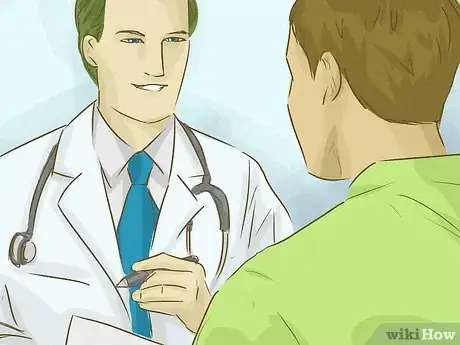



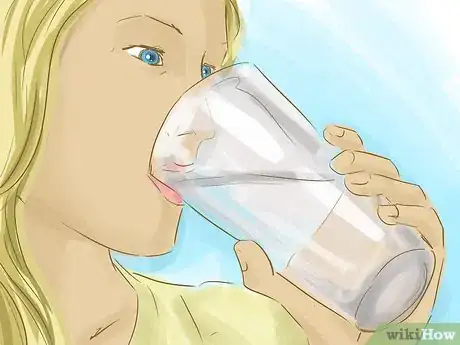
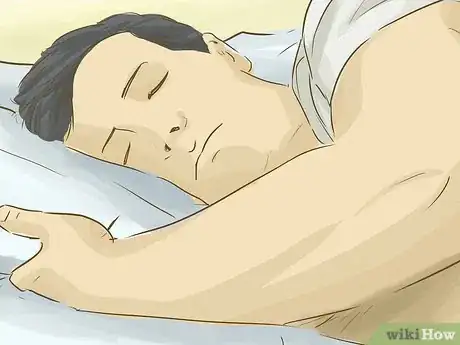
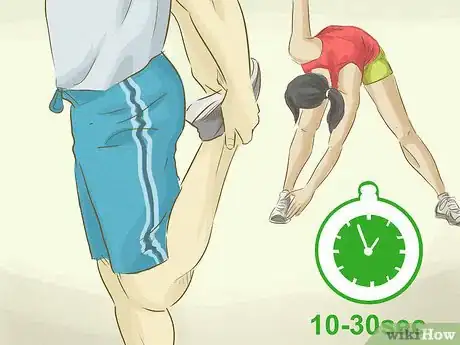
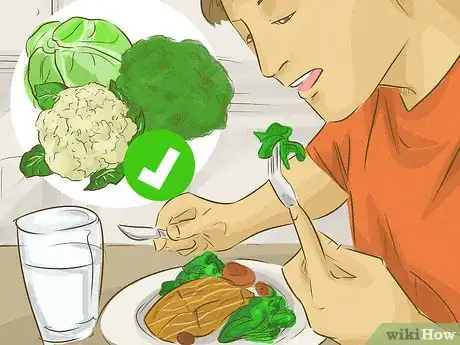
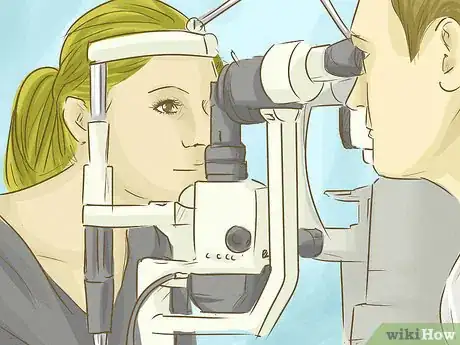

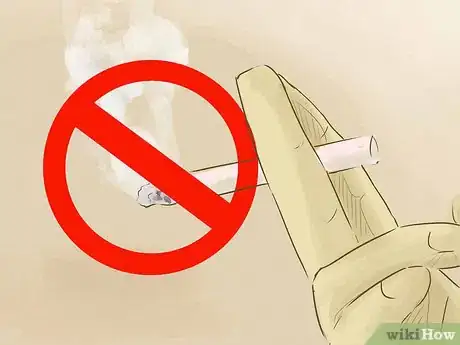

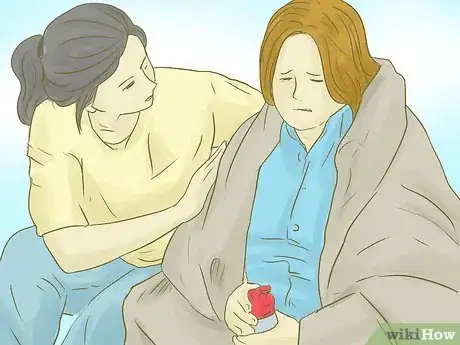



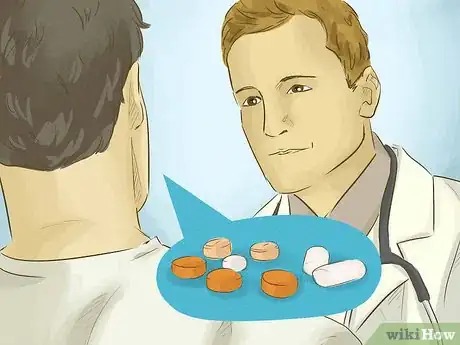
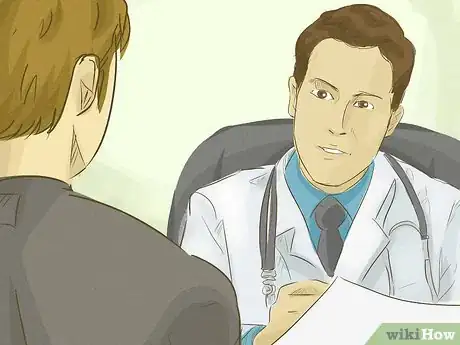
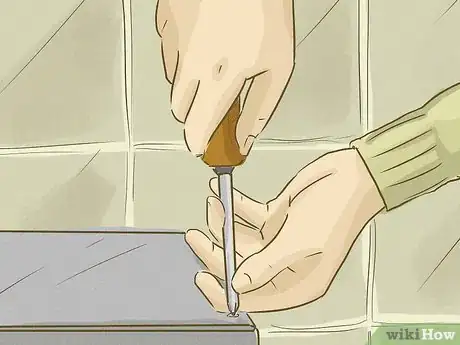


-Step-5.webp)
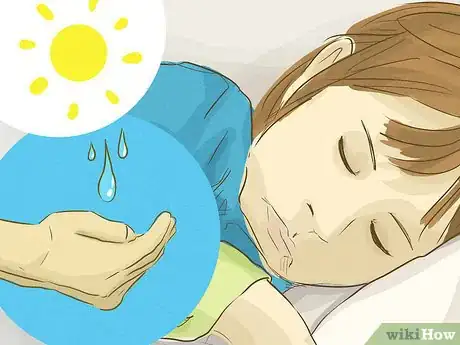
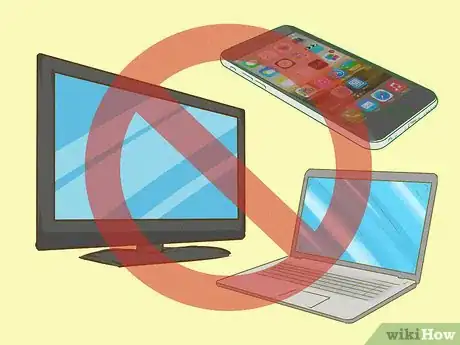
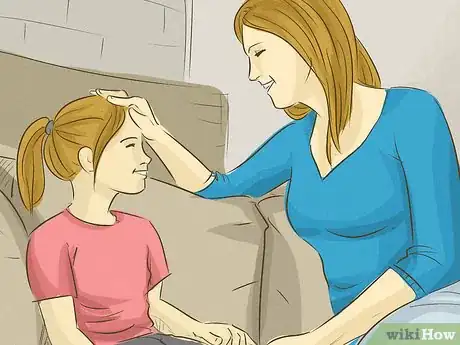
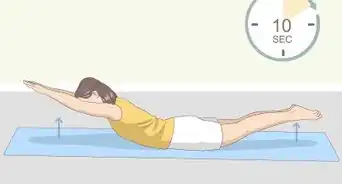








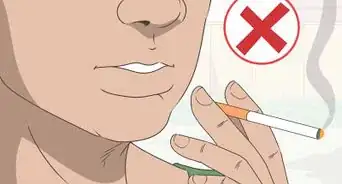










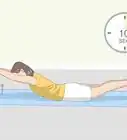






































Medical Disclaimer
The content of this article is not intended to be a substitute for professional medical advice, examination, diagnosis, or treatment. You should always contact your doctor or other qualified healthcare professional before starting, changing, or stopping any kind of health treatment.
Read More...